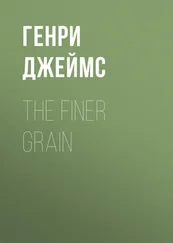Генри Джеймс - The Europeans
Здесь есть возможность читать онлайн «Генри Джеймс - The Europeans» — ознакомительный отрывок электронной книги совершенно бесплатно, а после прочтения отрывка купить полную версию. В некоторых случаях можно слушать аудио, скачать через торрент в формате fb2 и присутствует краткое содержание. Жанр: foreign_humor, foreign_antique, foreign_prose, на английском языке. Описание произведения, (предисловие) а так же отзывы посетителей доступны на портале библиотеки ЛибКат.
- Название:The Europeans
- Автор:
- Жанр:
- Год:неизвестен
- ISBN:нет данных
- Рейтинг книги:3 / 5. Голосов: 1
-
Избранное:Добавить в избранное
- Отзывы:
-
Ваша оценка:
- 60
- 1
- 2
- 3
- 4
- 5
The Europeans: краткое содержание, описание и аннотация
Предлагаем к чтению аннотацию, описание, краткое содержание или предисловие (зависит от того, что написал сам автор книги «The Europeans»). Если вы не нашли необходимую информацию о книге — напишите в комментариях, мы постараемся отыскать её.
The Europeans — читать онлайн ознакомительный отрывок
Ниже представлен текст книги, разбитый по страницам. Система сохранения места последней прочитанной страницы, позволяет с удобством читать онлайн бесплатно книгу «The Europeans», без необходимости каждый раз заново искать на чём Вы остановились. Поставьте закладку, и сможете в любой момент перейти на страницу, на которой закончили чтение.
Интервал:
Закладка:
“Will you kindly tell me,” said the mysterious visitor, at last, “whether I have the honor of speaking to Miss Wentworth?”
“My name is Gertrude Wentworth,” murmured the young woman.
“Then—then—I have the honor—the pleasure—of being your cousin.”
The young man had so much the character of an apparition that this announcement seemed to complete his unreality. “What cousin? Who are you?” said Gertrude.
He stepped back a few paces and looked up at the house; then glanced round him at the garden and the distant view. After this he burst out laughing. “I see it must seem to you very strange,” he said. There was, after all, something substantial in his laughter. Gertrude looked at him from head to foot. Yes, he was remarkably handsome; but his smile was almost a grimace. “It is very still,” he went on, coming nearer again. And as she only looked at him, for reply, he added, “Are you all alone?”
“Everyone has gone to church,” said Gertrude.
“I was afraid of that!” the young man exclaimed. “But I hope you are not afraid of me.”
“You ought to tell me who you are,” Gertrude answered.
“I am afraid of you!” said the young man. “I had a different plan. I expected the servant would take in my card, and that you would put your heads together, before admitting me, and make out my identity.”
Gertrude had been wondering with a quick intensity which brought its result; and the result seemed an answer—a wondrous, delightful answer—to her vague wish that something would befall her. “I know—I know,” she said. “You come from Europe.”
“We came two days ago. You have heard of us, then—you believe in us?”
“We have known, vaguely,” said Gertrude, “that we had relations in France.”
“And have you ever wanted to see us?” asked the young man.
Gertrude was silent a moment. “I have wanted to see you.”
“I am glad, then, it is you I have found. We wanted to see you, so we came.”
“On purpose?” asked Gertrude.
The young man looked round him, smiling still. “Well, yes; on purpose. Does that sound as if we should bore you?” he added. “I don’t think we shall—I really don’t think we shall. We are rather fond of wandering, too; and we were glad of a pretext.”
“And you have just arrived?”
“In Boston, two days ago. At the inn I asked for Mr. Wentworth. He must be your father. They found out for me where he lived; they seemed often to have heard of him. I determined to come, without ceremony. So, this lovely morning, they set my face in the right direction, and told me to walk straight before me, out of town. I came on foot because I wanted to see the country. I walked and walked, and here I am! It’s a good many miles.”
“It is seven miles and a half,” said Gertrude, softly. Now that this handsome young man was proving himself a reality she found herself vaguely trembling; she was deeply excited. She had never in her life spoken to a foreigner, and she had often thought it would be delightful to do so. Here was one who had suddenly been engendered by the Sabbath stillness for her private use; and such a brilliant, polite, smiling one! She found time and means to compose herself, however: to remind herself that she must exercise a sort of official hospitality. “We are very—very glad to see you,” she said. “Won’t you come into the house?” And she moved toward the open door.
“You are not afraid of me, then?” asked the young man again, with his light laugh.
She wondered a moment, and then, “We are not afraid—here,” she said.
“Ah, comme vous devez avoir raison!” cried the young man, looking all round him, appreciatively. It was the first time that Gertrude had heard so many words of French spoken. They gave her something of a sensation. Her companion followed her, watching, with a certain excitement of his own, this tall, interesting-looking girl, dressed in her clear, crisp muslin. He paused in the hall, where there was a broad white staircase with a white balustrade. “What a pleasant house!” he said. “It’s lighter inside than it is out.”
“It’s pleasanter here,” said Gertrude, and she led the way into the parlor,—a high, clean, rather empty-looking room. Here they stood looking at each other,—the young man smiling more than ever; Gertrude, very serious, trying to smile.
“I don’t believe you know my name,” he said. “I am called Felix Young. Your father is my uncle. My mother was his half sister, and older than he.”
“Yes,” said Gertrude, “and she turned Roman Catholic and married in Europe.”
“I see you know,” said the young man. “She married and she died. Your father’s family didn’t like her husband. They called him a foreigner; but he was not. My poor father was born in Sicily, but his parents were American.”
“In Sicily?” Gertrude murmured.
“It is true,” said Felix Young, “that they had spent their lives in Europe. But they were very patriotic. And so are we.”
“And you are Sicilian,” said Gertrude.
“Sicilian, no! Let’s see. I was born at a little place—a dear little place—in France. My sister was born at Vienna.”
“So you are French,” said Gertrude.
“Heaven forbid!” cried the young man. Gertrude’s eyes were fixed upon him almost insistently. He began to laugh again. “I can easily be French, if that will please you.”
“You are a foreigner of some sort,” said Gertrude.
“Of some sort—yes; I suppose so. But who can say of what sort? I don’t think we have ever had occasion to settle the question. You know there are people like that. About their country, their religion, their profession, they can’t tell.”
Gertrude stood there gazing; she had not asked him to sit down. She had never heard of people like that; she wanted to hear. “Where do you live?” she asked.
“They can’t tell that, either!” said Felix. “I am afraid you will think they are little better than vagabonds. I have lived anywhere—everywhere. I really think I have lived in every city in Europe.” Gertrude gave a little long soft exhalation. It made the young man smile at her again; and his smile made her blush a little. To take refuge from blushing she asked him if, after his long walk, he was not hungry or thirsty. Her hand was in her pocket; she was fumbling with the little key that her sister had given her. “Ah, my dear young lady,” he said, clasping his hands a little, “if you could give me, in charity, a glass of wine!”
Gertrude gave a smile and a little nod, and went quickly out of the room. Presently she came back with a very large decanter in one hand and a plate in the other, on which was placed a big, round cake with a frosted top. Gertrude, in taking the cake from the closet, had had a moment of acute consciousness that it composed the refection of which her sister had thought that Mr. Brand would like to partake. Her kinsman from across the seas was looking at the pale, high-hung engravings. When she came in he turned and smiled at her, as if they had been old friends meeting after a separation. “You wait upon me yourself?” he asked. “I am served like the gods!” She had waited upon a great many people, but none of them had ever told her that. The observation added a certain lightness to the step with which she went to a little table where there were some curious red glasses—glasses covered with little gold sprigs, which Charlotte used to dust every morning with her own hands. Gertrude thought the glasses very handsome, and it was a pleasure to her to know that the wine was good; it was her father’s famous madeira. Felix Young thought it excellent; he wondered why he had been told that there was no wine in America. She cut him an immense triangle out of the cake, and again she thought of Mr. Brand. Felix sat there, with his glass in one hand and his huge morsel of cake in the other—eating, drinking, smiling, talking. “I am very hungry,” he said. “I am not at all tired; I am never tired. But I am very hungry.”
Читать дальшеИнтервал:
Закладка:
Похожие книги на «The Europeans»
Представляем Вашему вниманию похожие книги на «The Europeans» списком для выбора. Мы отобрали схожую по названию и смыслу литературу в надежде предоставить читателям больше вариантов отыскать новые, интересные, ещё непрочитанные произведения.
Обсуждение, отзывы о книге «The Europeans» и просто собственные мнения читателей. Оставьте ваши комментарии, напишите, что Вы думаете о произведении, его смысле или главных героях. Укажите что конкретно понравилось, а что нет, и почему Вы так считаете.












